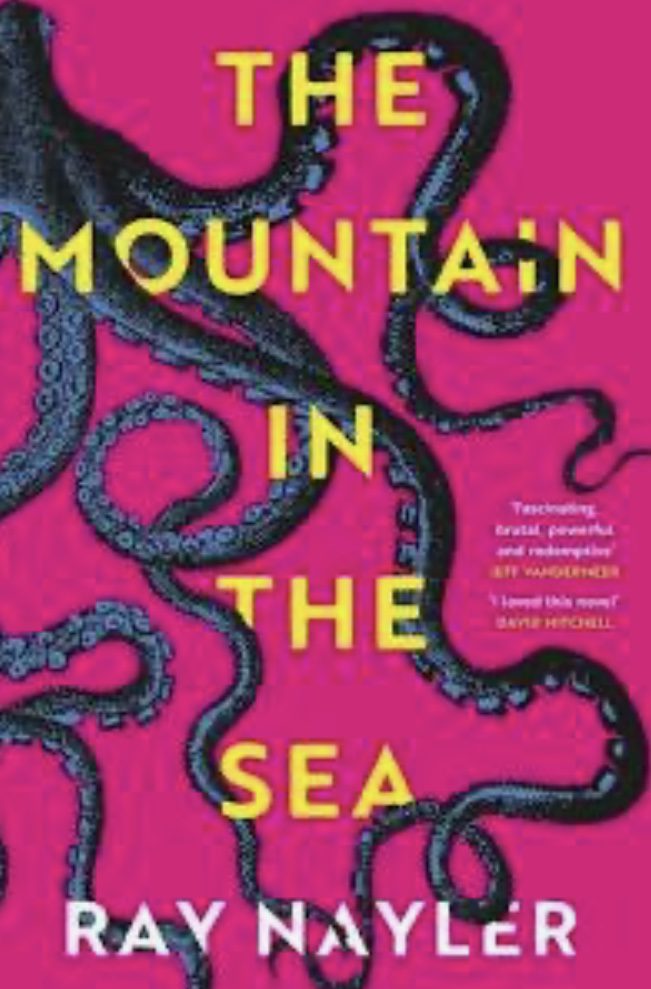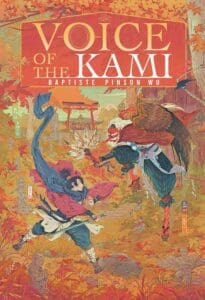
Synopsis
When pioneering marine biologist Dr Ha Nguyen is offered the chance to travel to the remote Con Dao Archipelago to investigate a highly intelligent, dangerous octopus species, she doesn’t pause long enough to look at the fine print. DIANIMA — a transnational tech corporation best known for its groundbreaking work in artificial intelligence — has purchased the islands, evacuated their population and sealed the archipelago off from the world so that Nguyen can focus on her research.
But the stakes are high: the octopuses hold the key to unprecedented breakthroughs in extra-human intelligence and there are vast fortunes to be made by whoever can take advantage of their advancements.
And no one has yet asked the octopuses what they think. And what they might do about it.
Review
The Mountain In The Sea is phenomenal. It left me lost for words, and I can’t stress how appropriate that is, because this book is all about language, communication, and connectivity. It disguises its speculation about what it means to be human in a first contact story that takes place, not with aliens, but an octopus.
If you’re thinking that the concept of an intelligent octopus sounds like a joke, this book will make you think again. It’s written so brilliantly and so sincerely that I bought into the idea of a sentient cephalopod before the characters had even dipped their toes in the water.
Part of what makes the story so engaging are the layers built into it. So let’s briefly talk about some of those layers, and what made it really work for me.
First up — philosophy.
Two of the main characters are scientists who have written seminal works in a) how oceans talk, and b) how to build an artificial human mind. Before every chapter, an excerpt from one of these books is quoted, and the effect is dazzling. These quotes drench the story in philosophy and observation. The scope of these snippets is immense, ranging from the nature of communication to the role of language, the evolution of our biases, and how the bodies we inhabit impact the fabric of our reality. It’s really impressive stuff. And it allows the story to plunge into serious depths without the need for lengthy exposition or heady dialogue. The chapters flow naturally and at an impressive pace without you ever feeling like you’re on the receiving end of a lecture, and yet, I felt like I had so many new things to think about as I read this book. It’s amazing.
Second — subversion.
The book subverts the norms when it comes to both character and plot. It toggles between a few different characters’ perspectives, each exploring a certain aspect of the main theme of the book. And part of the fun is anticipating how the separate strands of these characters and stories come together in a web. Let me tell you — it’s stunning. You’re expecting something huge — a big AHA moment — but instead of resolution, what you get is meaning. This story doesn’t try to be clever. It tries to matter. In that respect, it absolutely succeeds. And part of its success is in how it fools you into believing things about the plot and characters which turn out to be so much more than they appear. A big aspect of the book’s momentum is thanks to the subversive quality which permeates every chapter.
Third — the setting.
The book takes place in a technologically advanced future where AIs control fishing vessels, people camouflage their faces in digital masks, and the world’s first artificial human has achieved consciousness. But this advanced future doesn’t distance us from the beach where the octopuses live — the natural sanctuary they’ve carved out from the world. I could picture the ocean swelling over the sand just as clearly as I could the hexcopter which brings people to the island. But it’s the dissonance between the natural habitat of the beach and the all too believable techno-fused future which allows the story’s conflict to build with subtlety and style.
Fourth — symbols.
The way that symbols are both metaphorically and literally drawn into the book is just gorgeous. The allegories are vibrant, and I loved how the symbols printed across the page even carry their own hidden meanings.
And finally — the characters.
They’re so relatable. Even though they probably shouldn’t be!
Let me give you an example — Ha Nguyen is the protagonist, a woman who arrives at the island where sentient octopuses have been found. She’s the world’s leading expert in how an octopus may develop the ability to think. She’s willing to expand her mind to meet the challenge of finding a way to communicate with a being that isn’t human. So I understand why you’d assume that a marine-obsessed scientist who shuts herself off from the world to study eight-limbed creatures which may or may not have achieved consciousness might be a difficult person to relate to. Well… Nope. I felt everything that Ha did. The urgency of her studies, the yearning to understand, the highs, the lows, the guilt, the loneliness, the connections, and everything in between. I learned to think beyond the limits of my skin. And it’s the blend of all these ingredients together — philosophy, subversion, setting, symbols, and characters — that really makes the story pop.
Last year, Rae Mariz wrote a first contact novella from an underwater perspective in Weird Fishes, which I absolutely adored. This felt like the perfect companion to that story, focusing on how humans would react to the emergence of sentience if it came from the ocean. If you spliced Weird Fishes with the movie Arrival, you might have some idea of what to expect. But even then, comparisons don’t really do The Mountain In The Sea justice. This is a bold, original, thoroughly compelling story which gripped me with all eight of its octopus limbs.
The Mountain In The Sea is a mountain worth scaling, and a sea worth crossing. It did more than just entertain me. It made me feel connected. It made me feel human, along with all the responsibility that entails. It goes beyond the barriers of language to deliver something that is fresh, thoughtful, heartfelt, and meaningful. And I can say with certainty that it’s the best novel about how to talk to sentient octopuses you’ll ever read.









Leave a Reply